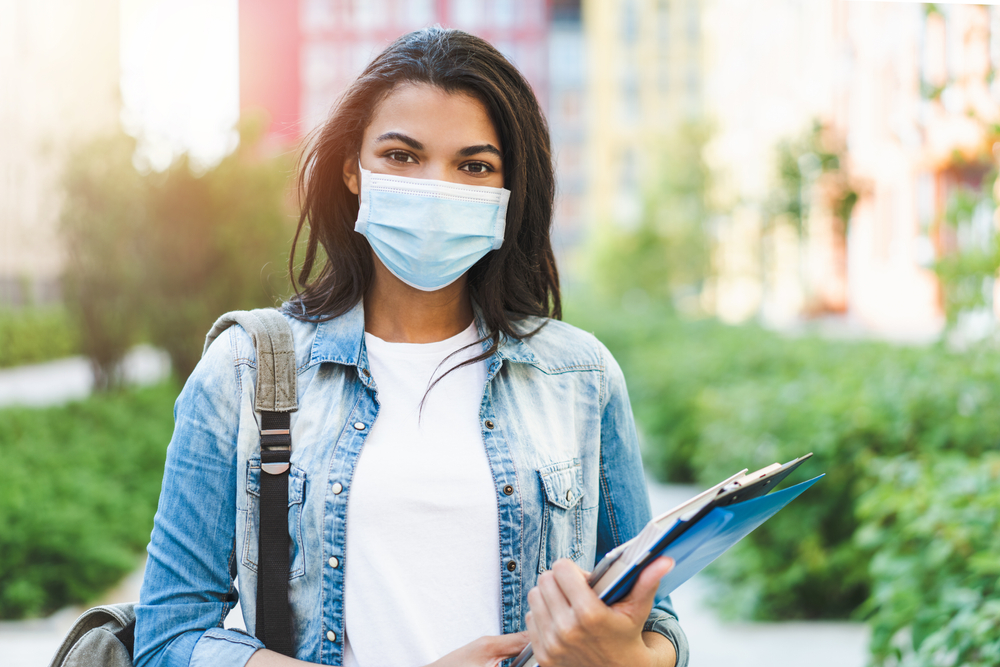As the flowers bloom and trees regain their leaves, many anticipate the beauty of spring. However, for those suffering from seasonal allergies, this time of year can be less about enjoying the outdoors and more about managing sneezing, itchy eyes and a myriad of other bothersome symptoms. An effective strategy that has gained attention is wearing a mask during allergy season. This article delves into the reasons why incorporating this simple practice into your daily routine can significantly alleviate the discomfort caused by pollen and other airborne allergens.
The science behind allergies and airborne pollen
Seasonal allergies — often caused by pollen from plants, trees, and grasses — can severely affect your quality of life. Pollen, which travels through the air, finds its way into our nasal passages and respiratory system, triggering allergic reactions. These reactions are the body’s defense mechanism against what it perceives as foreign invaders. Symptoms can range from mild, such as sneezing and itchy eyes, to more severe, including respiratory distress.
How masks can help
1. Filtering pollen: The most straightforward benefit of wearing a mask during allergy season is its ability to filter out pollen. Masks, especially those designed to filter out fine particles, can prevent these allergens from entering your respiratory system, thus reducing or even eliminating the allergic response.
2. Reducing symptom severity: By limiting exposure to allergens, masks can significantly decrease the severity of allergy symptoms. Many individuals find that wearing a mask leads to fewer allergic reactions and a reduced need for medications such as antihistamines or nasal sprays.
3. Enhanced outdoor experience: For allergy sufferers, venturing outdoors during peak pollen times can be daunting. A mask can change this, enabling you to enjoy outdoor activities without the dread of ensuing allergy attacks. Whether it’s a stroll in the park or an outdoor workout, a mask can make these activities more enjoyable.
Choosing the right mask
To effectively filter out allergens, the choice of mask is crucial. Here are a few tips:
- Opt for N95 or higher: These masks are designed to filter out 95% of particles, including pollen.
- Ensure proper fit: Make sure the mask fits snugly around your nose and mouth to prevent pollen from sneaking in.
- Consider comfort: If wearing a mask for long periods, choose one that is comfortable and breathable.
When to wear a mask
Timing your mask use can maximize its benefits. During allergy season, it’s advisable to wear a mask in the following situations:
- High pollen count days: Keep an eye on local weather reports for pollen forecasts and wear a mask on days when levels are high.
- Engaging in outdoor activities: Any prolonged outdoor activity during allergy season should be done with a mask, especially in areas with lots of greenery.
- Early morning or late evening: Pollen counts are typically higher during these times, so wearing a mask can be particularly beneficial.
Embrace the benefits of wearing a mask for allergy relief
Wearing a mask during allergy season presents a straightforward and highly effective solution to combat the discomforting symptoms commonly associated with seasonal allergies. By mastering when and how to properly utilize a mask, individuals can markedly enhance their quality of life throughout these challenging months. This practice is more than just a preventative measure; it’s a way to actively manage and mitigate symptoms that might otherwise hinder daily activities and enjoyment of the spring and early summer seasons.
Adopting the habit of wearing a mask allows you to partake in outdoor activities, from gardening to jogging, without the fear of triggering severe allergic reactions. It transforms the allergy season from a time of dread and discomfort to a period where you can still appreciate the blooming beauty around you. Masks serve as a barrier against pollen, dust and other airborne allergens, ensuring that your outdoor experiences are more pleasant and symptom-free.
Moreover, embracing this preventive strategy empowers you to take control of your health and well-being. It is a proactive approach that not only aids in symptom management but also reduces your reliance on medications and the associated side effects. As you prepare for the upcoming allergy season, remember that the key to a more comfortable experience could simply be incorporating a mask into your daily routine. A mask isn’t just a shield; it’s a tool that unlocks the full enjoyment of the season, allowing you to breathe easier and live better.
This story was created using AI technology.















